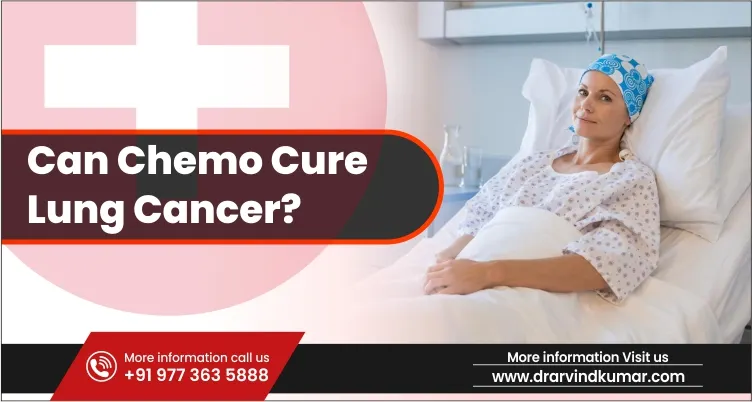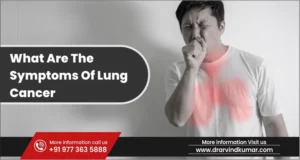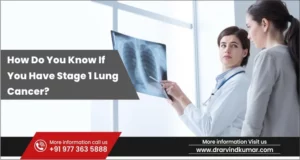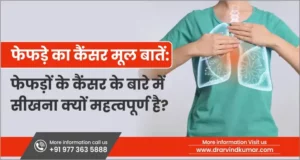Treatment for lung cancer called chemotherapy employs chemicals to eradicate cancerous cells. It is commonly known as chemo. Chemotherapy kills cancerous cells through the use of anti-cancer (cytotoxic) medications. These function by preventing the development of cancer cells. Chemotherapy can be administered alone or in conjunction with other forms of treatment. Can Lung Cancer Be Treated Successfully?
Your treatment objectives and preferences, the type and stage of lung cancer you have, and your general health will all affect your chemotherapy plan.
Continue reading to learn more about chemotherapy, does chemo cure lung cancer, how it is used to treat lung cancer, and how it can help you and your treatment team make informed decisions.
When Is Chemotherapy Used?
The main treatment for small-cell lung cancer (SCLC) is chemotherapy, but non-small-cell lung cancer (NSCLC) patients may also receive it instead of, in addition to, or instead of surgery.
Chemotherapy, known as adjuvant therapy, is used to treat any residual cancer following lung cancer surgery.
Neoadjuvant therapy is chemotherapy administered before surgery to reduce the tumor.
This therapy is available for lung cancer patients of any age. If surgery is not an option for you, your tumor may be reduced using chemotherapy and radiation therapy.
Chemotherapy In Small cell lung cancer (SCLC)
Small-cell lung cancer affects up to 15% of patients. The main form of treatment for small cell lung cancer is chemotherapy. Because this particular cancer kind responds effectively to chemotherapy, doctors often prescribe it. If the stage of your SCLC is limited, chemotherapy and radiation therapy will be used to treat your tumour.
Chemotherapy medications travel throughout the body in the bloodstream. They can therefore treat cells that have separated from the lung tumor and spread to other bodily areas. You will just receive chemotherapy if your SCLC has spread and reached an advanced stage. This is a result of radiation being beamed straight at your tumor. If your cancer is advanced, it is ineffective.
Chemotherapy may be used alone to treat small-cell lung cancer in some cases.
Chemotherapy can be given either before or after radiotherapy, as well as concurrently with radiotherapy.
If you are planning to have surgery for extremely early-stage small-cell lung cancer, your doctor might advise chemotherapy either before or after the procedure.
Chemotherapy In Non-Small cell lung cancer (NSCLC)
The most prevalent kind of treatment for non-small cell lung cancer is chemotherapy. Non-small-cell lung cancer affects up to 90% of patients with lung cancer. If you have NSCLC and have stage II or stage IIIa lung cancer, chemotherapy after surgery may prevent your disease from returning. If your stage III cancer cannot be surgically removed, radiation therapy may be used in addition to chemotherapy. The main form of treatment for stage IV NSCLC is chemotherapy, while radiation therapy may also be used to lessen your symptoms.
Chemo Before or after surgery
Before having surgery, some people may receive chemotherapy. Cancer may become smaller, as a result, making removal simpler.
Chemotherapy post-surgery can help reduce the likelihood of the disease returning in cases of early-stage NSCLC. Its crucial that you and your doctor discuss the advantages and potential hazards of chemotherapy in advance. The medication may have unwanted effects. Chemotherapy often works best in healthy persons. Chemotherapy is often started 4 to 8 weeks after surgery if you are well enough to receive it.
Chemo Before, after, or alongside radiotherapy treatment
In some cases, using chemotherapy before or after radiotherapy can help people who can undergo surgery to get rid of early-stage NSCLC.
Your doctor might recommend a combined treatment plan that includes radiation and chemotherapy if you are generally healthy (chemoradiotherapy).
Chemo in developed cancer
If your non-small cell lung cancer has spread locally or if it is advanced, you may need chemotherapy. While some peoples cancer cannot be treated, it can help them live longer.
Side Effects Associated With Chemotherapy
The negative effects of chemotherapy medications might be numerous. Which ones you have, depends on the medication, dosage, and duration of your therapy. They may consist of:
- Hair fall
- Losing of weight
- Nausea
- Vomiting
- Oral sores
- reduced appetite
- Constipation
- Diarrhea
- Tiredness
- increased chance of infection
- Bruises
- Bleeding easily
Peripheral neuropathy is a painful side effect that some chemotherapy medications such as Cisplatin, Vinorelbine, Docetaxel, and Paclitaxel may also induce. In your hands or feet, you can experience discomfort, burning, tingling, weakness, or cold sensitivity. Once the treatment is through, this usually disappears.
Does chemo cure lung cancer in the early stages
Chemotherapy may increase survival in certain people with early-stage lung cancer, according to research. Patients with NSCLC in the early stages who are healthy enough for surgery typically get a lobectomy or sleeve resection to remove the malignancy as an initial modality. If you have a high chance of recurrence, your doctor may recommend chemotherapy after surgery. Following surgery, chemotherapy is typically advised in an effort to eradicate any cancer cells that may have survived.
Can chemo and radiation cure stage 3 lung cancer
Stage 3 lung cancers are now incurable; however, treatment can frequently help extend life and ease symptoms. Cancer treatment may be aggressive, and all available treatments include the risk of causing additional symptoms and problems.
Consequently, treating stage 3 lung cancer might be challenging for medical professionals. This is because, by the time a person experiences symptoms, the cancer has already spread. For this reason, participation from a thoracic surgeon, radiation oncologist, and medical oncologist is frequently required when planning treatment for stage III NSCLC.
Treatment options are based on the tumors size, location in the lung, lymph nodes to which it has progressed, the extent of invasion into critical chest structures, general health, and response to treatment. Surgery cannot eliminate stage 3 tumors. Treatment for this stage of lung cancer is dependent on the patients general condition. If your health is generally good, chemotherapy combined with radiation therapy may be beneficial (known as chemoradiation). This therapy even has the potential to cure some patients.
Immunotherapy can be administered for up to a year to help keep the cancer stable if it remains under control following two or more chemotherapy and radiation treatments. Insufficiently healthy patients are typically treated with radiation therapy alone or, less frequently, chemo alone.
Can chemo cure stage 4 lung cancer
Stage 4 cancer cannot be cured, but it can be managed and treated. Options for lung cancer treatment in india depend on the location and extent of the cancers spread if the cancer cells have a specific gene or protein alterations, and your general state of health.
Even though they are unlikely to cure you, treatments like surgery, chemotherapy, targeted therapy, immunotherapy, and radiation therapy may lengthen your life and improve your quality of life if you are otherwise healthy.
By stage 4, cancer has progressed outside the lung where it first appeared. It might be challenging to treat lung cancer that is this advanced. While some medical procedures can lengthen life expectancy, they can also have unpleasant side effects that, in some situations, can reduce life quality.
Conclusion
Small-cell lung cancer (SCLC) and non-small-cell lung cancer (NSCLC) are treated with chemotherapy. The type of chemotherapy administered can change based on several variables. Chemotherapy can aid in lung cancer side effects reduction, life extension, and slowing or stopping cancer growth. Nevertheless, because every person is unique, different chemotherapy medications have varying effects on various persons. What works with and on one person might not be suitable for another.
Discuss the prognosis for the exact type and stage of lung cancer you have, as well as the effects of the chemotherapy you are undergoing, with your doctor.
FAQs
When is chemotherapy administered?
If you receive chemotherapy through a vein, you typically receive it every 3 to 4 weeks. A cycle is defined as every three to four weeks. You might receive chemotherapy for four to six cycles. If you take swallowable capsules, you might receive therapy once every week. Or you could consume it once every day for five days every three weeks.
How is chemotherapy given?
Your arm or hand receives the treatment via a drip. The drip is attached to a little tube (a cannula) that a nurse inserts into one of your veins. You might require a central line, a lengthy plastic tube that delivers medications into a large vein in your arm or chest. It remains in place while you receive treatment, which could take several months. You must also take the recommended dosage of your capsules per the directions provided by your doctor or pharmacist.
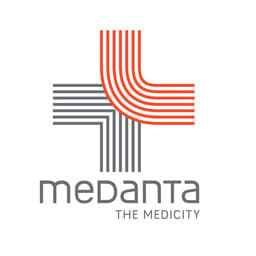
.webp)
